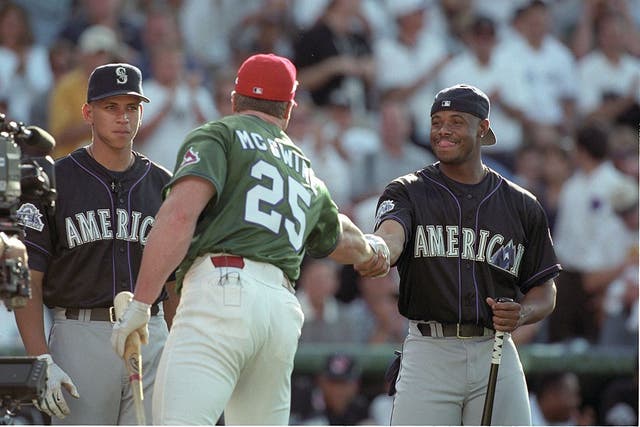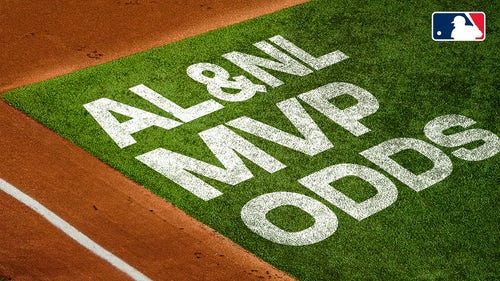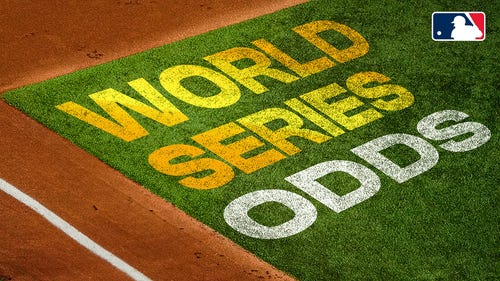
The inside story of Ken Griffey Jr.'s performance in the 1998 Home Run Derby
By Jake Mintz
FOX Sports MLB Writer
Ken Griffey Jr. is the Home Run Derby.
The images are forever stamped into our minds: hat backward, smile beaming, balls rocketing off warehouses. His three Derby crowns are the most ever. The man helped turn a ragtag, thrown-together contest into one of the most-watched events of the sporting season.
But that almost wasn’t the case.
Heading into the 1998 Derby — the last time Denver hosted the All-Star festivities — Griffey had only one tater crown to his name. And in the buildup to that home run contest, the game’s brightest star remained adamant that he would not participate, that the Mariners’ travel schedule was too burdensome and the event wasn’t worth the trouble.
That’s before a series of remarkable events changed his mind an hour before the Derby began.

Let’s zoom out and set the scene of July 7, 1998. In hindsight, that season stands out in baseball history for the Mark McGwire-Sammy Sosa home run race, but leading into the All-Star break, the story was really McGwire vs. Griffey.
The season prior, when McGwire finished with 58, just three short of Roger Maris’ record, Griffey was only two behind him with 56, while Sosa had 36. And at the halfway mark of the ‘98 season, McGwire had 37, Griffey 35 and Sosa just 33.
For Big Mac, who’d won the Derby back in 1992, there was never a doubt in his mind that he’d participate in Denver, even as the pressure of the home run race began to build.
"Home Run Derbies are the best, man. They’re almost more exciting than the game itself," McGwire told FOX Sports. "I think it’s awesome. I looked forward to it every year.
"Every All-Star game that I went to, if I wasn’t hurt, I tried to do it. I think I did seven of them. I think every big MLB star today should do it. It doesn’t mess up your swing at all — it’s just tiring. I loved it. It was a part of my game."

But for Griffey, the sport’s most marketable superstar, the Derby didn’t hold that same appeal. In May of that season, Griffey told media that he wasn’t planning to participate in July, citing the Mariners' difficult travel schedule and the league’s decision to have the Mariners play in the Sunday night ESPN game the evening before the Derby.
"I think maybe there was a wrist thing, but the main issue was travel," longtime Seattle Times writer Larry Stone told FOX Sports. "They were the most traveled team in baseball, and I think he thought that it was just a bit too much for him. He hadn’t really done well the previous few years when he participated."
Nowadays, Junior is revered as a Derby legend, his name synonymous with the contest itself. But heading into 1998, he’d won once, in 1994 at Three Rivers Stadium in Pittsburgh. So after he announced his intention to sit things out in Denver, Griffey became a lightning rod for a certain, entitled sector of baseball media.
"But now you hear he won't participate in Monday's All-Star home run hitting contest because the travel demands are too taxing — poor baby!" Bob Kravitz of the Rocky Mountain News wrote a few days before the Derby. "Now you look at Ken Griffey Jr. and think, ‘Punk.’ You think, ‘Typical spoiled brat jerk ballplayer.’ You think, ‘Just like the rest of them.’ And you know what? You're right."
Despite the pressure, Junior stuck to his guns. As far as anyone knew heading into Denver, the Derby would go on Griffey-less.
Nowadays, the Derby is one of the season’s premier events, a highly anticipated night of pure baseballing delight. But prior to 1998, the event wasn’t even televised live. Originally, the Derby took place mid-afternoon, right after the All-Star workout. ESPN would film it and run it on a tape delay that night while the players were enjoying the All-Star Gala.
But the 7 p.m. ET/5 p.m. MT start time in Denver presented a new opportunity: Air the event live in prime time.
"Since the early '90s, the Home Run Derby took place in the afternoon, and it was a put-together show that was highly viewed at night," former ESPN Derby broadcaster Chris Berman told FOX Sports. "In Colorado, however, the Home Run Derby moved to primetime. It was a big deal to have it in Colorado. It enabled us to experiment and see if this works.
"It did, and the rest is history."
During the All-Star workout that afternoon in '98, there was still a lack of clarity about who exactly would be participating. Sammy Sosa had announced a few days before that he’d be sitting out with a bad shoulder, so MLB officials scrambled to find his replacement. They presumably went to Griffey first, who yet again declined. Then they switched gears and approached Astros outfielder Moisés Alou.
"I remember I got to the ballpark for the workout, and I started signing autographs," Alou recalled to FOX Sports. "Someone from the league came up to me and asked me right there while I was signing autographs. They kinda put me on the spot, so I did it."
With Alou in the fold, the Derby field was pretty much set. The National League representatives would be Alou, the Braves' Javy López and Chipper Jones, McGwire and hometown Rockie Vinny Castilla. The AL would reportedly send out Cleveland teammates Jim Thome and Manny Ramirez, a young Mariners shortstop named Alex Rodriguez, Baltimore's Rafael Palmeiro and Tigers infielder Damion Easley.
The most glaring absence, of course, was Ken Griffey Jr.

For more up-to-date news on all things MLB, click here to register for alerts on the FOX Sports app!
When MLB conducted a small, on-field ceremony mid-workout to hand Griffey an award for being the league’s top All-Star vote-getter, the Denver fans trickling into Coors to watch the warm-ups showered Junior with an absolute tidal wave of boos.
That’s right: The face of a generation, the leading vote-getter three years running, baseball’s most popular player, was booed to a pulp by a demanding Colorado crowd disappointed by his decision to sit out the Derby.
"The fans at Coors booed him," a young Baltimore Sun reporter named Ken Rosenthal wrote. "They booed him as he received a trophy for getting the most All-Star votes, of all things. If only for a brief moment, the party was over. And Griffey was one unhappy host."
Ken Griffey Jr. carried the attention, the hopes and the demands of a generation of baseball fans. In the wake of the 1994 work stoppage, a lot of the baseball discourse centered, unfairly, on how the players were morally obligated to extend olive branches to the fans.
Griffey was an enormous part of that. The misguided idea that it was somehow his responsibility to rectify the damage done by ownership during the work stoppage clearly filtered its way down from the media to the fans in Denver that night.
The booing, however unjustified, got to Junior. He admitted as much afterward. And so, just two hours before the Home Run Derby, the most beloved baseball player of his generation retreated to the American League clubhouse carrying his leading vote-getter trophy beneath a cloud of boos.
To help get the Colorado crowd amped up for the event, MLB brought in the king of introductions, boxing public address announcing legend Michael Buffer. You might know him as the "Let's Get Ready to Rumble!" guy.
As Buffer introduced the Derby participants in ascending order of home runs, the tension at Coors Field began to grow as Rockies fans waited for the introduction of their beloved third baseman, Vinny Castilla. Buffer called out Castilla’s name as the Mexican slugger jogged out to cacophonous applause, and what happened next stunned many in attendance.
"BATTING IN THE NO. 5 POSITION FOR THE AMERICAN LEAGUE.
"HE’S LEADING THE AMERICAN LEAGUE WITH 35 HOME RUNS.
"FROM THE SEATTLE MARINERS, KEN GRIFEEEEEEEEEY JUUUNIOR."
Up the dugout steps trotted Junior, his hat pointed the correct direction (backward), his face stoic and business-like. Gauging from the replay of the event, the crowd greeted his surprise entry with mostly cheers and maybe a few scattered boos here and there.
Griffey then dapped up the American Leaguers one by one before heading over to the National League side. When Griffey reached Chipper Jones, the Braves' All-Star cracked a huge smile and joked, "I thought you said you weren’t doing it, huh?"
Griffey muttered something undecipherable back to Chipper but did not linger long and did not make small talk. He didn’t have time for such trivialities.
He had a Derby to win.
For more up-to-date news on all things Mariners, click here to register for alerts on the FOX Sports app!
So what happened?
What in the two hours between his shower of boos and his heroic entrance changed Junior’s mind? The displeasure voiced by the Rockies faithful who desperately wanted to see him participate likely had something to do with it.
But according to those in attendance that afternoon, something else — or perhaps a combination of somethings — happened.
Said Rockies coach and 1998 Derby thrower Rich Donnelly: "Somebody talked him into it. I remember they were telling that afternoon who was in the Derby because we were throwing it. And we were deciding who of us would throw to who, and they said that Griffey wasn’t in it, and I remember being disappointed."
Blue Jays broadcaster and former ESPN sideline host Buck Martinez: "I remember Berman and I were talking about how Griffey wasn’t going to do it, but someone got to him, and I don’t know who it was, but they said, ‘You have to do this because you’re the face of baseball.’"
Larry Stone: "There was a short time after batting practice before the Derby where a lot of people got in his ear, particularly Joe Morgan. That’s a guy who Ken really respected. Joe played with his dad on the Big Red Machine. Joe told him he had to do it. Maybe Frank Robinson talked to him as well. But I remember Joe Morgan was the big one."
Chris Berman: "The great Joe Morgan, a Hall of Famer, did indeed help talk Junior into doing it. Junior really looked up to Joe, and his participation added to the fact that [the Home Run Derby] was live."
Martinez: "I played for Frank and knew Joe a lot from working together at ESPN. Frank must have been like, ‘You gotta do this. You’re a huge star. You gotta do this.’ I played for Frank in winter ball, and he was the type of person who was all about pushing the game forward, so that sounds like the type of thing he would do."
Unfortunately, neither the Mariners nor Griffey himself responded to FOX's requests to verify these tidbits. And with both Robinson and Morgan having passed away in the last couple of years, they are no longer around to confirm the account themselves. But the prevailing story is that some combination of Robinson, Morgan, Griffey Sr. and Manny Ramirez convinced Griffey Jr. to compete in the 1998 Home Run Derby.
Either way, Griffey was in.
After watching his compatriots swing it for an hour or so, he walked to the plate for his first round, needing seven homers to advance. In the early going, things looked iffy, as he had only one tater with five outs to go.
But the Kid caught fire and finished with eight, advancing to the next round with only McGwire yet to swing.
Despite all the hubbub around Griffey's non-participation and change of heart, main attraction 1A that evening in Denver was still Mark McGwire.
Remember: This was peak Big Mac, 70-homer Big Mac, moon shot on a nightly basis Big Mac. And with the Denver air thinner than a razor blade, the Cardinals' tater-maker was expected to do something memorable.
To make a long story short, he didn’t.
McGwire never got into a rhythm, hitting just four home runs, and was eliminated from the competition in the first round. (He did, however, smash the longest homer of the night, a mind-blowing, 500-foot blast off the second-deck facade in dead center.)
In his post-round interview, McGwire apologized to the crowd and insinuated that the issue was his batting practice thrower, Rick Matthews. "Most of those pitches were middle-away, and I like the ball middle-in," he said. "Sorry, everybody."
More than two decades later, McGwire still remembers how difficult it was to hit Matthew’s BP.
"The thing is, you have to understand the first time I saw his BP was right there during the Derby," he said. "I backed out and was like, ‘Oh, my god, he’s throwing cutters to me.’ So I was lucky to hit two because I could have stood there all day and tried to wait for one middle-in, but he kept throwing them middle-away, and it's hard for a right-hander to take a ball like that and hit it out.
"That was tough, but I just had to deal with it. I didn’t feel pressure, but I knew I was in trouble when I saw the first pitch. The crowd was groaning, too, because I kept fouling balls off or hitting line drives, which obviously wasn’t the plan. A few years later, MLB started allowing players to bring their own guys in."
The Matthews cutters that moved away from the right-handed McGwire and put him out of contention were, in fact, perfect for the left-handed swings of Griffey and Thome, and so those two future 600-homer-club members found themselves facing off in the final round.
Even though Thome had already hit a ball within feet of Coors Field’s row of purple, mile-high seats, 5,280 feet above sea level — "I don’t think I actually reached it. People say I did, but I think I just missed it" is what Thome told FOX Sports — the Derby felt like Griffey’s to lose.
"Think about it from my perspective," Jim Thome, a man with 612 dingers and one of the greatest home run hitters of his generation, recalled. "I went from the year before not hitting a single homer [in the Derby] in my home ballpark to being in the finals against Griffey, one of the greatest home run hitters of our lifetime."
When Thome went out in his final round and cracked only two taters, the writing was on the wall.
Griffey calmly strolled up to the plate and hit his three home runs without breaking a sweat, making only three outs. His final blast was an extraterrestrial moon shot so high it must have tickled the constellations.
Upon that baseball’s return to our earthly atmosphere, the 1998 Home Run Derby champion didn’t toss his bat or throw his hands in the air or really even celebrate at all. He graciously thanked the BP catcher before bowing his head to his chest with a fulfilled yet frustrated look on his face that read something like, "You ungrateful, mere mortals don’t deserve me. Look what I do for you."
And he was damn right.
After knocking his 17th and final home run of the evening to clinch his second Derby title, Junior waltzed over to his former Seattle teammate, Harold Reynolds, who was doing sideline for ESPN at the time. Reynolds asked him why he changed his mind and decided to participate in the Derby.
Griffey was succinct.
"You know, I don’t like to get booed, so you know, I’ve got four million reasons why I did it," he explained, referencing the league-leading four million All-Star votes he received from fans.
And that was pretty much it. As far as I can tell, Griffey hasn’t spoken about the evening since.
But Junior’s greatness that night in Denver was more than the 450-foot blasts he showered down upon the undeserving Colorado fans who only hours before had showered him with boos. Context is critical. Griffey’s willingness to rise above the ungratefulness, to shoulder the expectations from the entire baseball world in the fragile years following 1994, to shut up his loudest critics with a symphony of moon shots — that’s what made him different.

"In my 30 years of announcing baseball and covering it, the most majestic home run and home run swings belonged to Junior Griffey," Berman, who was on the mic that night, recalled. "They weren’t pulverizers off back billboards, but they weren’t just little fly balls that just made it over the fence.
"They were beautiful arcs to left-center, to right-center, even to center field, down the line. He hit it, and you knew it was going to go out, but you had your time to go, ‘Back, back, back’ because it was a majestic home run, almost in the shape of how you would imagine a rainbow."
If you go back and watch the entire Derby on YouTube, you’ll notice that not once did the Kid crack a smile. No, this was all business. It was a display of epic proportions, sure, a captivating and awe-inspiring performance, but that was simply a coincidence.

Ken Griffey Jr. felt wronged and slighted — rightly so — and he had a point to prove to the booing Colorado masses: He was still baseball’s greatest showman, its most beautiful home run hitter. And he didn’t need to say as much.
His swing, a hack so elegant and powerful it justifies baseball’s original invention, did all the talking for him.
Jake Mintz is the louder half of @CespedesBBQ and a baseball analyst for FOX Sports. He’s an Orioles fan living in New York City, and thus, he leads a lonely existence most Octobers. If he’s not watching baseball, he’s almost certainly riding his bike. You can follow him on Twitter @Jake_Mintz.










